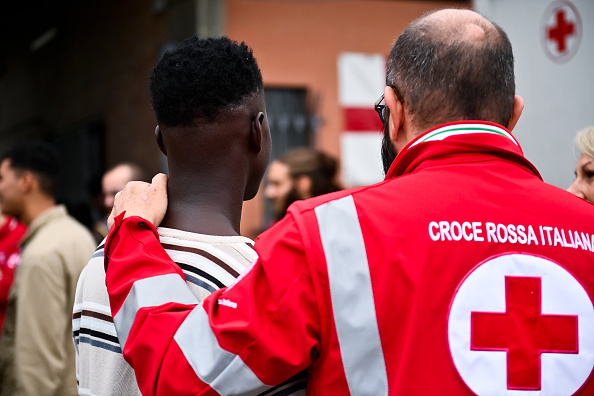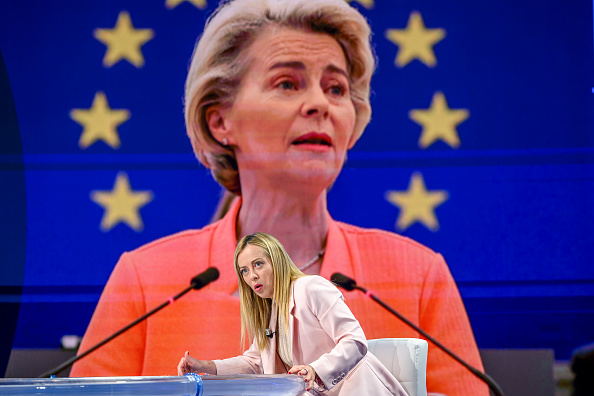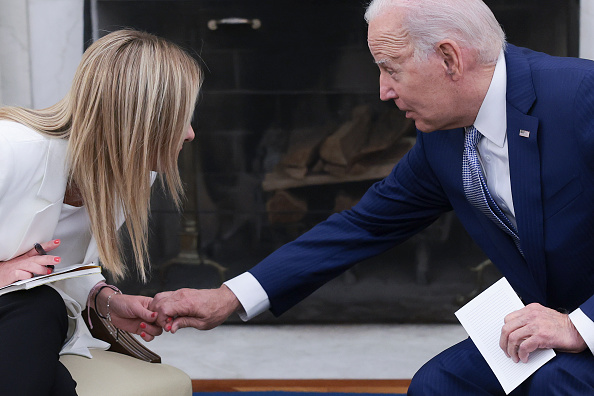There has been a good deal of disappointment expressed about the performance of Italian premier Giorgia Meloni by those who saw her election in September 2022 at the head of the Brothers of Italy Party as a decisive move to the nationalist and populist right. Both her supporters and those who nervously represented her victory as a long step back toward fascism in southern Europe expected her to become swiftly embroiled in a death struggle with the European Union, the European courts, and the political establishment of Italy. Her methodology has been a surprise but there is increasing evidence that her goals are unchanged and that her tactical skill is far greater than that of the bombastic and nationalist Right.
There were great dangers in the frontal bulldozer approach many expected from her. Italy has had an astonishing total of almost 70 governments since the end of World War II 79 years ago. The electoral system is essentially proportional representation, which makes a one-party majority practically impossible. The senior civil service exercises comparatively greater authority than elected officials as its job security is much greater. And Italy’s President, who is not directly elected by the people, has the right to call or not call elections, and to send bills back to parliament for reconsideration. The president has the right to appoint the prime minister and the cabinet, and this fact has led to extensive periods of what are called technocratic governments, led by non-elected officials.
There were four such governments between 1993 and 2021 during which time the country was governed mainly according to the guidelines of the European Union and in that time the country’s economy lost ground competitively, its industrial capacity contracted and fiscal and social policy was essentially initiated in Brussels.
Before she was invited to form a government, the euro-integrationist president of Italy, Sergio Mattarella, required Meloni to promise that she would not damage Italy’s reputation within the European Union. Power has significantly shifted in Europe in this still somewhat new century: Britain has not only left the EU but for the first time in 190 years it has been afflicted by ephemeral governments of the kind Italy has had since World War II: five prime ministers in the last eight years, albeit all of the same party. Germany has the most nondescript and indistinct chancellor in the history of the Federal Republic and Olaf Scholz’ standing in the polls indicates that he is unlikely to be reelected. The French president, Emmanuel Macron, is operating without a legislative majority and is running significantly behind the leader of the National Rally, Marine Le Pen, who seems to have a good chance of replicating François Mitterrand’s success in being elected president of France on the third attempt. Joe Biden probably has less influence in Europe than any American president since Calvin Coolidge and his prospects for reelection are not brilliant. In these circumstances, the premier of Italy has become in many respects the leading incumbent political figure in Western Europe, a distinction that Italy has not enjoyed since the times of Alcide de Gaspari from 1945 to 1953.
Premier Meloni’s approach to the enactment of her plans has been the exact opposite of what was expected: she has developed a cooperative relationship with the head of the EU, Ursula von der Leyen. Never has the government in Rome been more appreciatively and deferentially courted than in the last two years. Meloni became the linchpin between the European Commission and the nationalist Right in Europe and brokered an agreement between Hungary’s Prime Minister Viktor Orban and the EU to accept a fund for Ukraine in exchange for €10.2 billion that had previously been promised to his country but withheld. (While she was at it, she arranged a similar payment for Italy.)
She also was vital in bringing to agreement an intense debate of almost a decade over the European Union’s treatment of migrants in which Germany agreed to drop what Poland and Hungary regarded as excessively humanitarian language about the rights of migrants. It was a compromise but it helped to reduce the flow of Italy’s illegal immigrants. Premier Meloni gained the unanimous applause of the West in extracting Italy from China’s imperialist and faltering Belt and Road initiative, which Italy should never have touched.
Meloni’s treatment of the immigration question has been subtle and effective: instead of using the navy to intercept vessels bearing illegal migrants or refusing the right of NGOs to dock their ships carrying such migrants in Italian ports, she approved tougher punishment for human smugglers, stricter procedures to grant humanitarian acceptance, longer waiting periods in detention centres, more detention centres, and bilateral agreements with Tunisia, Turkey, Libya, and Albania and illegal immigration which had more than doubled from 2022 to 2023, fell by 67 per cent from 2023 to 2024.
She has also increased the number of approved non-EU foreign workers by 20 per cent. Italy is dealing with a population that shrunk between 2014 and 2022 from nearly 61 million to just under 59 million as the birthrate has declined to 1.25 children per Italian woman. The present government has committed a billion euros to encouraging an increasing birthrate. Similar methods have produced a 30 per cent increase in the fertility rate of Hungary, though a more successful (and less costly) method came from Georgia’s Orthodox patriarch, Ilia II, who announced that he would personally baptise any third or higher Orthodox child born to married parents. Fertility rates rose 30 per cent in the country following this announcement.
The Italian Premier is also seeking to advance her programme on two broad fronts: she is trying to amend Italy’s Constitution to give the largest party 55 per cent of all seats in parliament and to elect the prime minister directly to a five-year term, and to curtail the president’s ability to install his own prime ministers, while decentralising power to Italy’s regions.
She is also pursuing a conservative majority in the European Union Parliament and is personally heading the slate of Italian members of the European Parliament in next month’s elections in every region to try to attract votes to her party’s candidates. She has stated the objective of gaining a right-of-centre majority in the EU as has been accomplished in Italy.
On balance, far from being a disappointment, Georgia Meloni is the most interesting and original leader now at the head of any large democratic country and may soon be the country’s most successful premier since de Gaspari, who outsmarted and defeated the Italian Communists 75 years ago.





What Giorgia Meloni can teach Europe’s Right – despite what the mainstream media tells you